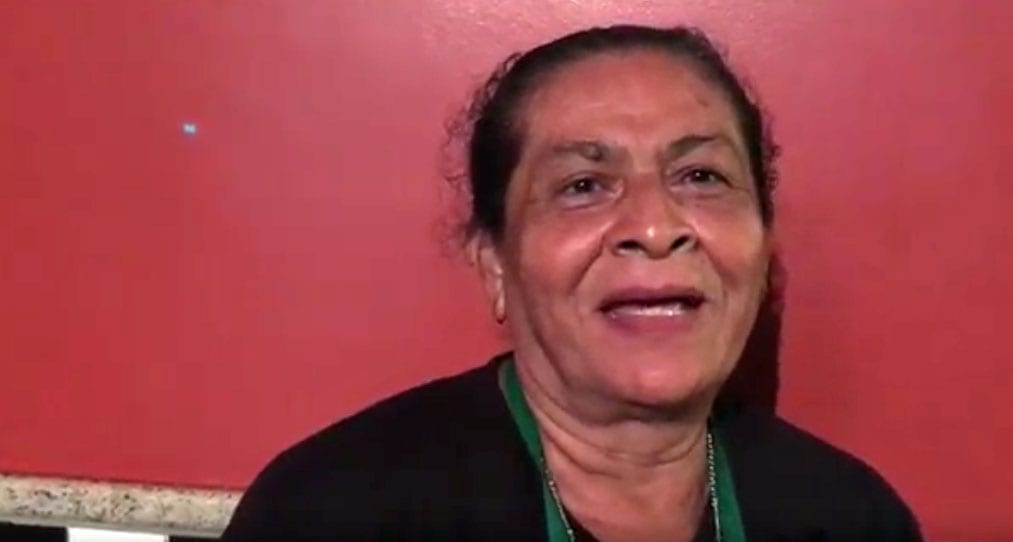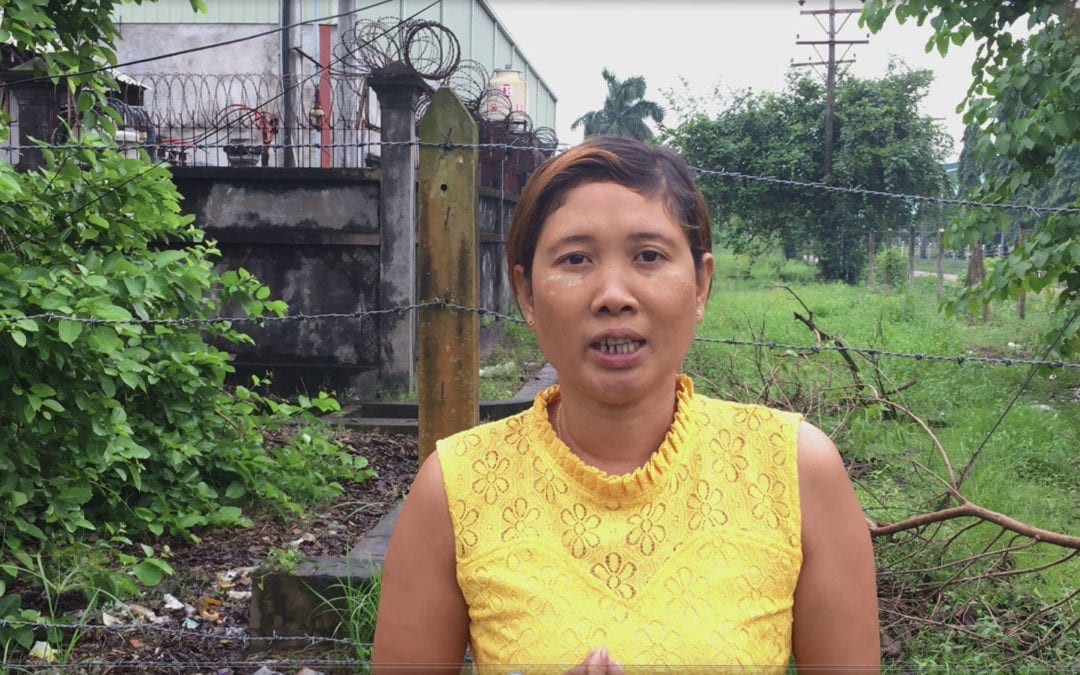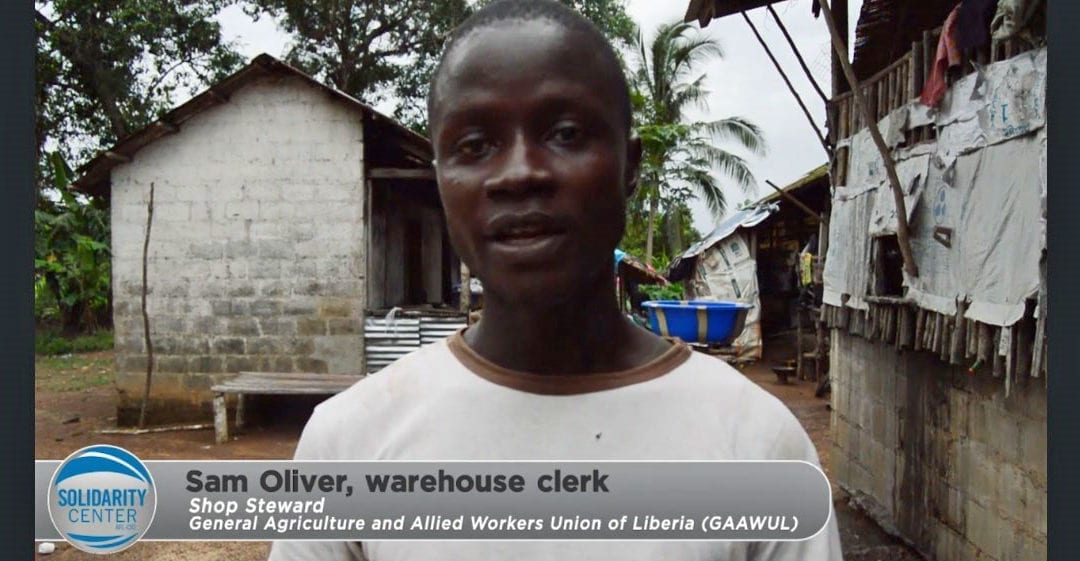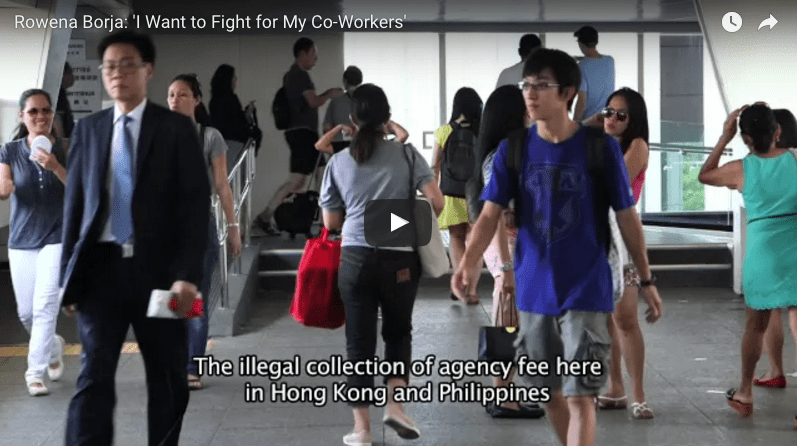
Apr 14, 2017
Hi, I am Rosalie Ewengue, I am Congolese. I have worked as a domestic worker in Morocco for eight years, and have been an undocumented migrant worker for six years. I participated in an awareness-raising campaign with the Afrique Culture Maroc and Solidarity Center that focused on the issues facing undocumented migrant workers, and I tried to encourage undocumented women migrant workers to approach the regularization office and register themselves. That’s how I became an activist and a member of Collectif des Travailleurs Migrants au Maroc (Morocco Migrant Workers Organization).
In 2015, and always with Solidarity Center’s partnership, we launched an awareness-raising campaign focused on domestic workers. The goal was to identify the domestic workers and to learn more about their status and working conditions.

Dec 21, 2016
Esperanza Cardona, coordinator of the National Women’s Commission of La Via Campesina in Honduras, is working to end poverty through agrarian reforms and gender equality that will enable farmers to retain land rights. The organization represents two million women, 70 percent of whom live in poverty and 49 percent of whom live in extreme poverty, says Cardona.
“My name is Esperanza Cardona. I am from Honduras. I am the coordinator of the Comision Politica de Mujeres Campesinas (Policy Commission for Campesina Women). My organization is the National Women’s Commission of La Via Campesina in Honduras. It’s a mixed organization, one that fights for land rights and natural resources. We campesinos are worried about neoliberal policies that only bring us the violation of our lands and our rights, and exploitation of villages. [One such policy is] the modernization of agriculture law (approved in 1992), a law that only benefits large landholders and multinational companies … and the villages? The villages dying from hunger, poverty, malnutrition?
[In 2015], we women and our fellow campesinos, presented to the Congress a draft law on agrarian reform, food security and gender equity to replace the agriculture modernization law–which is only bringing us assassinations and discrimination. And still today, that law has yet to be considered. But we women—and the men working with us—are still fighting. And we are not going to stop confronting neoliberal policies. Latin American governments only care about money. They sell the best pasture, the best land, the best territory, and they only think about the accumulation of capital. And that’s why we women are going to keep fighting. We can’t stand any more hunger, any more poverty, any more child malnutrition, any more violations. In my country, Honduras, there’s a company that for 26 years producing corn and beans. Then one day a guy came—his name was Salvador (Savior) and expropriated their land. They brought in a lot of military. People were forcibly evicted from their land. This is the result of neoliberal policies. They are doing us great harm. This is why there is migration to the bigger cities or to countries to the north. And what do our governments do? That’s why today, I am asking women to reorganize to confront neoliberal policies. Otherwise, what are we going to do?”

Nov 8, 2016
I am Ma Lwin Lwin Mar and 34 years old. I come from Ngaputaw Township in Ayeyarwaddy Region to Hlaing Thar Yar and work in a garment factory. (Hlaing Thar Yar is a factory district outside Yangon, Myanmar’s capital, where 700,000 workers make clothes and goods for western brands.)
I work in the garment factory for my living and to support also my family.
While working here in the factory, CTUM (Confederation of Trade Unions-Myanmar) came and formed the trade union in November 2013. After formation of the trade union, 204 workers were dismissed by the factory owner without any reason and unlawfully in regard to the issue on (minimum daily wages of Kyat) 3,600 ($2.80).
When they tried unlawfully to dissolve our trade union, CTUM supported our organization very strongly. Because of the strong support of the CTUM, all the workers could come and work again at their worksites peacefully.
Therefore we would like to say that CTUM has taken the responsibility to solve all the unfair activities of the garment factory owner and take care of the workers when the factory owner and CTUM tried to settle.

Nov 7, 2016
“When this union took over, people lived in deplorable housing. Through the intervention of this union, you can now see they are renovating some of these houses and negotiation is on the table so they can fast track the renovation.”

Jul 7, 2016
Win Nay Aung Thant works from 7 a.m. to 6 p.m. or 7 p.m., at a garment factory in Myanmar and is paid just enough to survive. The factory’s electrical wiring is unsafe and Win says “after a day’s work, we are happy to still be alive.”
Jul 7, 2016
Like many migrant workers, Filipinos seeking domestic work in other countries must pay large fees to labor brokers to get a job–a situation that leads to human trafficking, says Rowena Borja. A domestic worker in Hong Kong originally from the Philippines, Borja is working with the Hong Kong Confederation of Trade Unions (HKCTU) to help other domestic workers get rights on the job.





